
Struggling with a restless night’s sleep? Unlock the potential for better sleep by discovering the secret weapons that may reside in your kitchen. In the pursuit of improved sleep quality, a nutritionist suggests that incorporating specific foods into your diet could be the key to a more restful slumber. Let’s delve into the world of culinary remedies that hold the promise of transforming your sleep patterns and enhancing the overall quality of your rest. Explore these 10 sleep-inducing foods that may just be the secret weapons your nights have been waiting for.
- The Connection Between Nutrition and Sleep
- Unveiling the Secret Weapons
- Conclusion
The Connection Between Nutrition and Sleep
Understanding the intricate relationship between what you eat and how well you sleep is the first step. The significance of making mindful dietary choices for optimal sleep quality cannot be overstated. It’s time to recognize the power of nutrition in shaping our sleep patterns.
Unveiling the Secret Weapons
- Nuts and Seeds: The Bedtime Snack
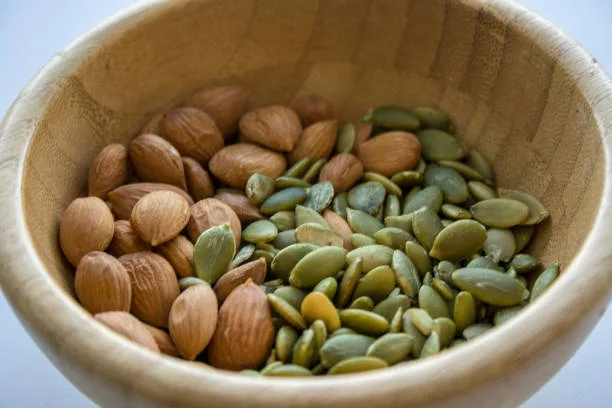
These tiny wonders contain magnesium, a mineral known for its muscle-relaxing qualities. Additionally, they house melatonin, the hormone responsible for signaling the body that it’s time to wind down. So, before you tuck yourself in, consider reaching for a handful of these wholesome treats. Your taste buds will thank you, and your journey to a tranquil night’s sleep might just begin with a simple bedtime snack. Sweet dreams!
- Cherries: Nature’s Melatonin Boost

Nature has a sweet solution for better sleep – cherries. These vibrant fruits are not only delicious but also harbor a natural secret: melatonin. Melatonin is a hormone that regulates our sleep-wake cycle, and cherries are one of the few natural food sources containing this sleep-inducing compound.
- Bananas: The Magnesium Source
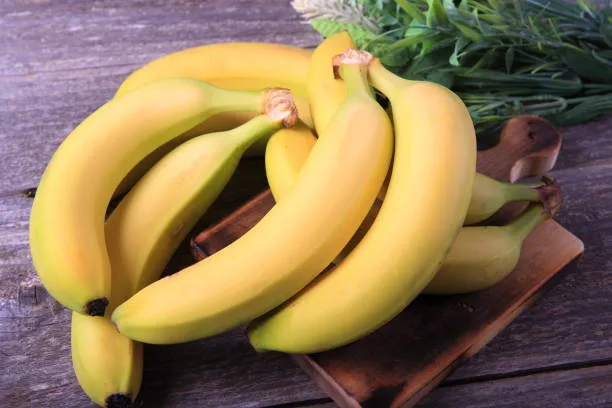
A simple and natural way to enhance your sleep? Consider the humble banana. Beyond its potassium-rich reputation, bananas are also a noteworthy source of magnesium, a mineral with remarkable sleep-promoting qualities. Magnesium plays a crucial role in relaxing muscles and calming the nervous system, making it an excellent addition to your bedtime routine.
- Kiwi: Vitamin C for Sleep
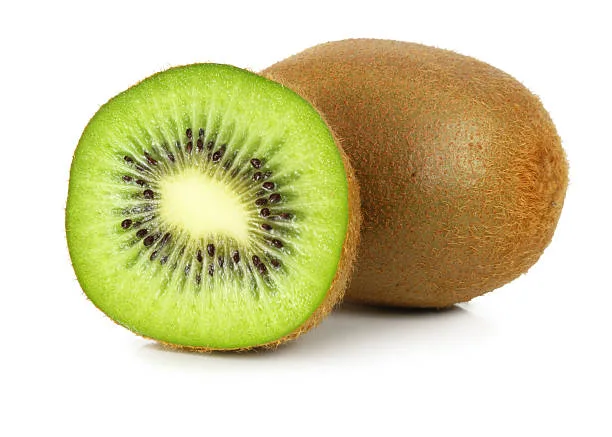
The power of a restful night’s sleep with the vibrant kiwi, a fruit celebrated for more than its refreshing taste. Packed with vitamin C, kiwi offers a unique sleep-enhancing potential. Research suggests that vitamin C may help improve sleep duration and quality. Adding kiwi to your evening routine could be a delightful way to boost your vitamin C intake, supporting your body’s natural sleep mechanisms.
- Warm Milk: Grandma’s Remedy
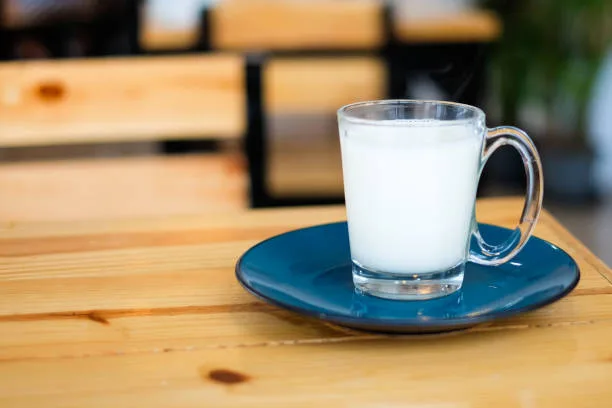
There’s a reason warm milk is a timeless remedy for a good night’s sleep – it’s not just nostalgia; it’s science. Milk contains tryptophan, an amino acid that serves as a precursor to both serotonin and melatonin, neurotransmitters known for their roles in relaxation and sleep regulation.So, before you cozy up under the blankets, consider indulging in a warm mug of milk.
- Oats: Sustained Energy and Serotonin
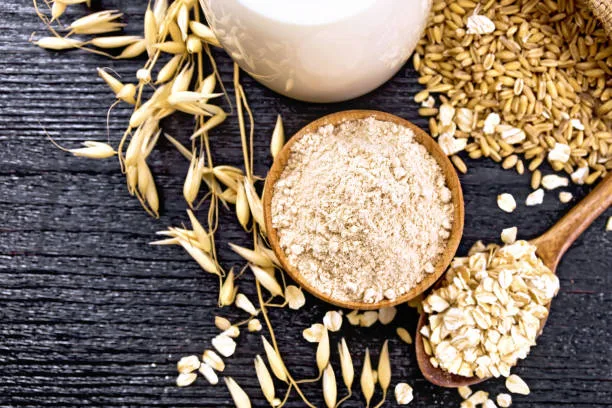
More than just a breakfast staple, oats hold the key to a well rounded night’s sleep. Packed with complex carbohydrates, oats provide sustained energy, ensuring your body remains nourished throughout the night. Oats contain tryptophan, an amino acid that contributes to serotonin production. As serotonin is a neurotransmitter linked to mood and sleep, incorporating oats into your evening routine might just be the wholesome addition your bedtime needs.
- Dark Chocolate: Sweet Dreams

Indulging in a bit of dark chocolate may just be the guilt-free ticket to sweet dreams. Beyond its rich, decadent flavor, dark chocolate contains flavonoids, which have been associated with various health benefits, including potential relaxation and improved sleep.dark chocolate is a source of magnesium, a mineral known for its role in muscle relaxation and calmness. While moderation is key due to its caffeine content, savoring a small piece of high-quality dark chocolate as an evening treat could be the perfect way to satisfy your sweet tooth and pave the way for a night of delightful dreams.
- Herbal Teas: Calming Infusions

As you wind down for the night, consider the soothing embrace of herbal teas. Chamomile and valerian root, among other herbal varieties, have long been celebrated for their calming properties.These teas contain compounds that interact with receptors in the brain, promoting relaxation and reducing stress. A warm cup of herbal tea can be a gentle ritual to signal to your body that it’s time to relax and prepare for a restful night’s sleep.
Conclusion
As we wrap up this culinary exploration, remember that achieving better sleep is within reach, starting with what you choose to nourish your body. So, the next time you find yourself tossing and turning, consider reaching for these sleep’s secret weapons and let the transformation begin. Here’s to nights filled with rest, rejuvenation, and the sweet embrace of a deep, satisfying sleep.
FAQ’s:
1. Why does nutrition play a role in sleep?
Nutrition influences the production of neurotransmitters and hormones that regulate sleep. Certain foods contain sleep-promoting compounds, making them valuable allies in the quest for better sleep.
2. Can nuts and seeds really help with sleep?
Yes, nuts and seeds, such as almonds, walnuts, and pumpkin seeds, are rich in magnesium and melatonin, which can contribute to muscle relaxation and signal the body that it’s time to wind down.
3. What’s special about cherries for sleep?
Cherries naturally contain melatonin, a hormone that regulates sleep-wake cycles. Incorporating cherries into your evening routine may help improve the quality of your sleep.
4. How does magnesium in bananas affect sleep?
Bananas are a good source of magnesium, a mineral that relaxes muscles and promotes a sense of calm. Including bananas in your diet can contribute to a peaceful night’s sleep.
5. Is warm milk just a myth, or does it really help with sleep?
Warm milk contains tryptophan, an amino acid that can promote the production of serotonin and melatonin, contributing to a sense of relaxation and drowsiness.
6. What role does oats play in sleep improvement?
Oats provide sustained energy and contain tryptophan, which can support the production of serotonin. This can help regulate sleep and contribute to a more restful night.
7. How can dark chocolate help with sleep?
Dark chocolate contains flavonoids and magnesium, which may have a calming effect and contribute to better sleep. However, moderation is key due to its caffeine content.
8. Why are herbal teas recommended for better sleep?
Herbal teas like chamomile and valerian root have calming properties that can help relax the mind and body, making them excellent choices for promoting sleep.
9. How can I incorporate these foods into my daily routine?
Start by gradually introducing these foods into your meals or snacks. Consider incorporating them into evening meals or as part of a calming bedtime routine. Experiment with recipes to make them enjoyable.
10. Can these foods replace other sleep interventions or treatments?
While these foods can contribute to better sleep, it’s essential to maintain a holistic approach. Consult with a healthcare professional for a comprehensive understanding of your sleep needs and consider these foods as part of a broader strategy.

